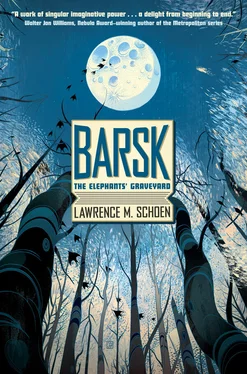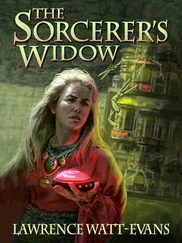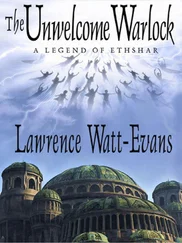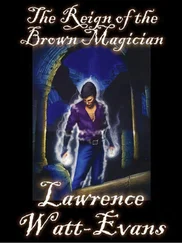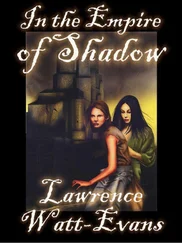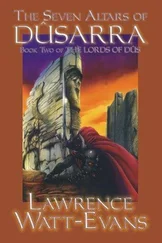And then, she had him, or at least a tiny piece of him. A single nefshon belonging to a recently deceased, male Fant in his prime, and with the flavor of Jorl’s touch upon it. This was Arlo. She focused her will upon it, causing the particles of all other possible remaining conversants to fade from her perception. The nefshons of her desire came at her call, more swiftly than most summonings because they’d already been gathered near by Jorl’s use on the planet below.
Seconds later, a construct of Arlo coalesced and she brought all of her attention back to the image of her long-vanished home in Yargo. Her conversant stood before her, eyes closed, taller than most Lox, leaner as well. She’d dressed him as his own subconscious imagined him, in the multi-pocketed, bright orange and blue vest and utility shorts of a career pharmer.
“You’ve been summoned more than once before so I’ll spare you the formal ritual. You don’t need grounding. You understand what this experience is, yes?”
“I was just talking to Jorl…”
“And you’ve managed to retain that memory, an impressive feat, I assure you, but not something that interests me just now. I’m after recollections from before your death, not any chats you’ve had since.”
“I don’t understand. Who are you? Why are you Speaking to me?”
“Focus, Boy. Tell me your name, and then look at me. Closely.”
“I’m Arlo. And … Oh! This isn’t possible. You’re dead.”
“So are you, but we’re not going to let that get in our way. Now say it, words give body to thoughts. Say it.”
“You’re the Matriarch.”
She allowed herself a smile and reached out, her trunk encircling his left ear where it joined his head the way a parent might comfort a child.
“And you, my boy, are the savior of our people.”
“The what?”
“Years before my own death, I saw that you would kill yourself. Why did you choose to do so, Arlo?”
“I didn’t. Why would I? I had a great life. I was successful, I loved Tolta, we both loved our son—”
“There was a son? I had not seen that. Curious, but not important either. What is important is the truth. We don’t have time for lies, and I’m hardly in a position to share what you reveal with anyone else. So tell me, Arlo. Tell me, why did you take your own life?”
He turned away, pacing across her workroom to stand by the window and gaze out. “You have no conception of how difficult it was. An inspiration, really. I had to act on it at once; if I’d worked it through rationally I’d have lost my nerve. But in the moment, with nothing but oblivion coming after, I could do it. Only … Jorl, and now you, keep summoning me back, and in this endless moment from the end of my life I have nothing but time. Time to reflect on the pain I’ve caused my wife. Time to mourn seeing my boy grow up. I made the ultimate sacrifice, but with every summoning I agonize over it again and again. I’ve come to hate Speakers. Can you appreciate the irony?”
Margda said nothing. He hadn’t really been talking to her. She recognized his soliloquy as a conversation he’d wished he could voice to Jorl, venting the words out her parlor window instead. She waited for him to tire of his own silence.
“This isn’t Keslo.”
“It’s not. That doesn’t matter either. Tell me the reason for your suicide.”
He continued to stare into the empty Civilized Wood of her making. When he spoke, it might as well have been to himself.
“I’d been working on a new drug, a taww variant. It had the potential to allow the creation of a more powerful form of koph.”
“I’d suspected as much, but be specific. Powerful how?”
“A single dose would last a lifetime. Speakers would be able to perceive nefshons at any time, as easily as opening their eyes.”
“That’s exactly what the Alliance wants,” said Margda. “After eight hundred years, they’ve more than grown tired of their utter dependence on us for koph. Give them this drug, and they’ll lapse back into their sense of superiority and leave all of Barsk alone again.”
“I couldn’t. The variant was unstable. The taww’s toxicity had the same source as the mechanism that allowed it to be retained permanently. It would work, but in the process it killed the user. So I went looking for a binding agent to resolve that problem…”
“And you found it?”
Arlo turned back to face the Matriarch, a haunted look in his eyes.
“I did. In bacteria derived from a bioluminescent insect I found in my son’s bug collection.”
Margda slid from her hammock and crossed to meet him, taking his hands in hers. “And did this neutralize the toxic effects of your variant?”
“It did. Perfectly. The simulations showed the perceptual enhancement remained unlocked and accessible. In that sense, the new drug was a complete success. But it also did more.”
“More?”
“If the user had carried the bioluminescent in his or her body for more than a season, the taww variant increased the perceptual capabilities beyond what I could model. At least two orders of magnitude, probably greater.”
“I don’t understand. Why would anyone have an insect’s bacteria in their body?”
Arlo pulled his hands free and raised one to lightly touch the aleph that glimmered faintly on her head. “Because you decreed the creation of the aleph, and the people who made it a reality used that chemical in the tattooing process.”
She staggered back, a myriad possibilities and consequences racing through her mind. “You’re saying, that if I used your new and improved taww variant, that not only would I never need to take koph again, but that my abilities would increase a hundred-fold?”
“No.”
“Why not?”
“Two reasons. Mainly because you’re already dead. But also because I eliminated the only sample I created. I destroyed it along with all of my notes and equipment and anything else that might cause people to suspect what I had discovered. And then I died.”
“But why?”
“For the same reasons you would want to give a single-dose koph to the Alliance. Because if they learned of such a thing, that we had it and they did not, their paranoia and loathing would expand beyond anything we’ve seen since they forced all Eleph and Lox to resettle on Barsk.”
Margda scowled. “What gives you the right to make that decision for everyone. You were a pharmer, not a legislator. What do you know of negotiating with the Alliance?”
“You think you could do better?”
“I was one of the architects of the Compact that has kept our people safe for eight hundred years!”
“Exactly. Why would I risk throwing all of that away? Besides, it’s more than just that. No one should have this kind of power. Right now, Speakers can reach back centuries, but with the new drug anyone with an aleph could search through millennia, possibly ten or a hundred times that with practice.”
“Yes, and the Alliance actively discourages digging back that far. But that’s something that could likely be negotiated. There’s no point at present, but if the means to access such ancient memories became available, options would open up.”
Arlo fanned his ears. “Spoken like a legislator, not a pharmer. Do you even understand how memory works?”
Margda waved the question away with her trunk. “Simple associations, neural networks, semantic representation through distributed points of activation.”
“Of course you’d say that.”
“What’s that supposed to mean?”
“Everything you said came from the psychological understanding of your generation. But your own discovery changed all that. Once you showed the galaxy how to see nefshons, new research opened up new explanations. Those models you described are still true, but only go so far. They account for much of learning, semantic memory, and even aspects of episodic memory. But not our memory of other people.”
Читать дальше
